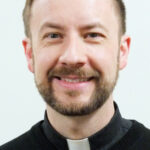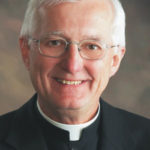Staffers from a parish in our diocese made a request of The Catholic Messenger. Provide information about who to contact to voice a desire to fight for the cleansing of the church and to promote policies that protect the faithful. Like many active Catholics in our diocese, these staffers love their church but feel deep anger toward leaders who covered up clergy sexual abuse.
Bishops across the U.S. already are hearing plenty from the people of God they serve and are now taking steps to begin the cleansing process. Among those actions, hammered out by the U.S. Conference of Catholic Bishops’ Administrative Committee:
• Establishing a third-party reporting system to receive complaints of abuse and direct those complaints to the appropriate ecclesiastical and civil authorities.
• Instructing the USCCB Committee on Canonical Affairs and Church Governance to develop policies addressing restrictions on bishops who have been removed or resigned because of abuse allegations.
• Initiating the process of developing a code of conduct for bishops regarding abuse.• Supporting a full investigation of the situation of Archbishop Theodore McCarrick, including allegations of assaults on minors, priests and seminarians.
The bishops also recognize, much too late in our church’s history, that lay people must be included in the decision-making process. Bishops, who serve as successors of the apostles, are as fallible as the rest of us and would benefit from an outside perspective on governance. But as we work together — clergy and laity — on cleansing our church and healing its wounds, we cannot lose sight of our mandate from Christ: living and sharing the joy of the Gospel.
We read in Ephesians (4:11-13): “It is he who gave apostles, prophets, evangelists, pastors and teachers in roles of service for the faithful to build up the body of Christ, till we become one in faith and in the knowledge of God’s son, and form that perfect man who is Christ come to full stature.”
Pope Francis writes in “The Joy of the Gospel” that “even if the Christian message has known periods of darkness and ecclesial weakness, it will never grow old. … Whenever we make the effort to return to the source and to recover the original freshness of the Gospel, new avenues arise, new paths of creativity open up, with different forms of expression, more eloquent signs and words with new meaning for today’s world (No. 11).”
Our diocese has embarked on an initiative called “Vision 20/20,” which aims to harness the essence of “The Joy of the Gospel” to transform the life of our parishes, schools, religious education and other entities so that we reach out with hope, to people on the peripheries. Please participate in the conversations that will be held in your parishes this fall on the Joy of the Gospel and the listening sessions that follow.
Our active participation — using the gifts and strengths we have been blessed with by the Holy Spirit — hospitality, teaching, counseling, praying, comforting, for example — will help us to cleanse our church and win the fight for our church’s well-being.
At the same time, we cannot forget the victims of clergy sexual abuse, nor the perpetrators. Both are in need of healing and compassion. When the clergy sexual abuse scandal first broke in 2002, adults who may have been too traumatized to report being abused years earlier finally felt able to come forward.
Lessons have been learned. The national Charter for the Protection of Children and Young People appears to be having a positive impact. Allegations of clergy sexual abuse of minors made since 2004 have been on a downward trend, statistics from the Center for Applied Research in the Apostolate (CARA) show.
The prevention and education principles embodied in the charter are working, says Stephen Rossetti in the Sept. 20 issue of America magazine. “A study produced by an independent professional research team at the John Jay College of Criminal Justice, commissioned by the U.S. bishops, found that acts of child sexual abuse by Catholic clergy in the United States peaked in the mid-1980s. It found that 4 percent of Catholic priests were abusing minors at the height of the crisis. This number has plummeted and is now estimated to be less than 1 percent,” said Rossetti, who assisted the bishops’ committee on drafting of the charter.
Not even one instance of abuse is acceptable, as Gray and Rossetti point out, but it’s important to keep the current crisis in perspective. We need to fix what’s wrong, in a thoughtful collaborative way, clergy and laity together. We also need to celebrate all that is good in our church. We invite you to share with The Catholic Messenger what you appreciate most about the Catholic Church.
Send an email to arland-fye@davenportdiocese.org or a letter to: The Catholic Messenger, in care of the Editor, 780 W. Central Park Ave.,
Davenport, Iowa, 52804.
Barb Arland-Fye, Editor











